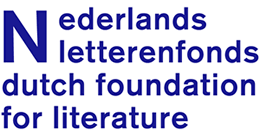Ending Push to Make Blasphemy a Crime
PEN International Applauds Unanimous U.N. Accord Ending Push to Make Blasphemy a Crime
London, UK, 31 March 2011—PEN International praises the U.N. Human Rights Council for its recent unanimous vote on the right of all individuals to practice religion, which ended a thirteen-year campaign by the Organization of the Islamic Conference (OIC) to make blasphemy a crime.
“Freedom of expression may cause discomfort, but it is the ultimate protection for people of any faith,” said John Ralston Saul, President of PEN International.
Since 1997, a coalition of countries led by the 57-nation OIC has put forward resolutions on “combating religious defamation” that contained language demanding that states ban blasphemy and other religious denigration. PEN and other human rights organizations have lobbied against the proposals, warning that they would significantly erode crucial international and national protections for freedom of expression.
In September 2010, PEN International hosted an influential discussion at the Human Rights Council in Geneva, citing numerous cases where governments have used religious defamation laws to jail writers and suppress unpopular opinions. In live testimony and in videotaped statements, writers and free-expression advocates from around the world spoke about the potential harm of imposing legal restrictions on expression considered offensive or defamatory to religions. They argued that such restrictions not only would do little to foster mutual understanding and respect, but also could be used to stifle creative freedom and suppress minority views and religions.
On 24 March 2011, instead of reintroducing the religious defamation resolution at the current Human Rights Council session, the OIC presented a new resolution that focuses on ending religious discrimination. The resolution removes all references to protecting religions and shifts the emphasis to protecting individual believers, something PEN has long argued is the correct approach both in principle and in the law.
“This unanimous resolution affirms that all nations can come together to agree upon language and a framework for protecting all forms of freedom of expression,” said Saul. “The writers of PEN have expressed their belief most passionately that rights are inherent in individuals, not institutions such as organized religions.”
In the words of Nobel Laureate, Wole Soyinka last September, “Since you have so many religions in the world, and there is only one humanity, that one humanity and the fundamental claims of humanity have to take precedence.”
****
Background information:






